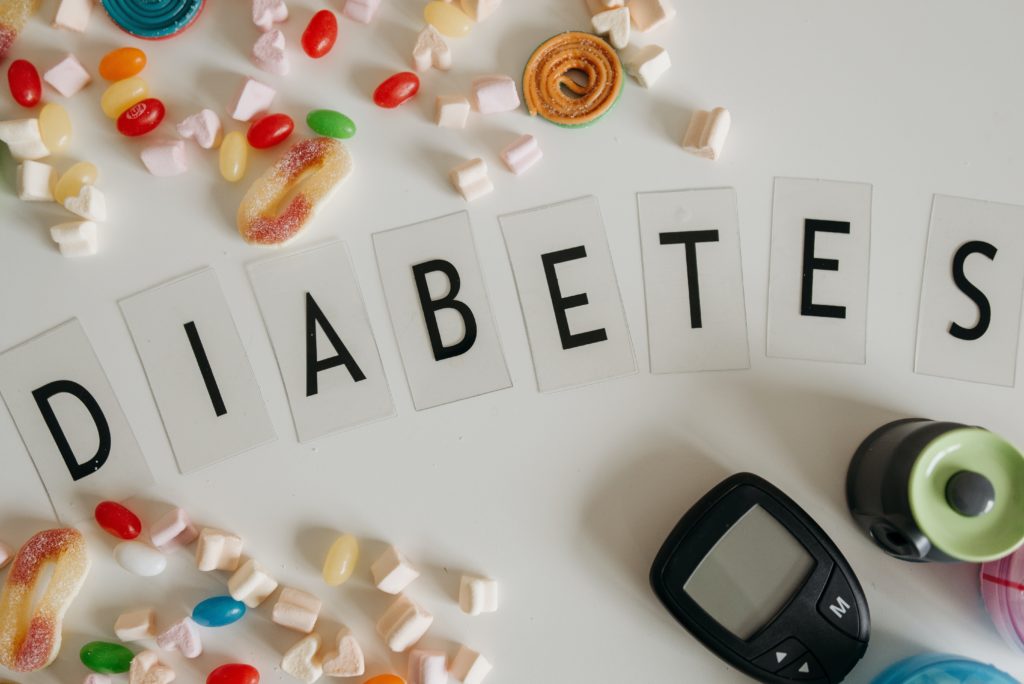A1C, also known as glycated hemoglobin, is a crucial marker used to assess blood sugar control over time in individuals with diabetes. Understanding the role of A1C medications and how these are effective in diabetes management. In this guide, we will delve into the science behind A1C, explore different medication options, and offer practical tips to help manage your A1C levels effectively.
Contents
What Is A1C?
 A1C, also known as the glycated hemoglobin test, is a blood test used primarily to monitor the long-term control of blood glucose levels in individuals with diabetes. Hemoglobin, a protein in red blood cells that carries oxygen, naturally binds with glucose in the blood; this combination is termed “glycated.” The A1C test measures the percentage of glycated hemoglobin in a person’s blood, reflecting the average blood glucose levels over the past two to three months.
A1C, also known as the glycated hemoglobin test, is a blood test used primarily to monitor the long-term control of blood glucose levels in individuals with diabetes. Hemoglobin, a protein in red blood cells that carries oxygen, naturally binds with glucose in the blood; this combination is termed “glycated.” The A1C test measures the percentage of glycated hemoglobin in a person’s blood, reflecting the average blood glucose levels over the past two to three months.
This time frame is significant because it corresponds to the lifespan of red blood cells. Unlike daily blood glucose testing, which provides a snapshot of blood sugar levels at a specific moment, the A1C test offers a broader view of blood sugar control over a longer period.
The importance of the A1C test in diabetes management cannot be overstated. It is a crucial tool for both patients and healthcare providers as it helps in assessing how well the blood sugar levels are being managed. The results of the A1C test are presented as a percentage, with typical target values being below 7% for many adults with diabetes.
What Level Of A1C Requires Medication?
The level of A1C that requires medication varies based on individual circumstances, including the type of diabetes, age, the presence of diabetes-related complications, and overall health. Generally, for most adults with diabetes, the American Diabetes Association (ADA) recommends an A1C target of less than 7% to effectively reduce the risk of complications. However, this target can vary:
- More Stringent Targets (<6.5%): For some individuals, such as those with a short duration of diabetes, long life expectancy, and no significant cardiovascular diseases, a lower A1C target (less than 6.5%) might be appropriate. This approach is often aimed at minimizing the risk of long-term complications.
- Less Stringent Targets (<8%): Conversely, for older patients, who have a history of severe hypoglycemia, limited life expectancies, or extensive comorbid conditions, a less stringent target (such as less than 8%) might be recommended. This is to prevent hypoglycemia and to balance the quality of life and daily functioning.
The decision to initiate medication for A1C management is made on an individual basis and response to lifestyle modifications like diet and exercise. Typically, if lifestyle changes alone do not bring A1C levels to the desired target, medications are considered as a first-line treatment for Type 2 diabetes.
What Are Some Best A1C Medications Used?
 The best A1C medications vary depending on individual health profiles, types of diabetes, and specific treatment goals. However, there are several commonly prescribed A1C medications known for their efficacy in managing A1C levels in individuals with diabetes. Here are some of the key categories and examples:
The best A1C medications vary depending on individual health profiles, types of diabetes, and specific treatment goals. However, there are several commonly prescribed A1C medications known for their efficacy in managing A1C levels in individuals with diabetes. Here are some of the key categories and examples:
Metformin
Metformin is often the first line of treatment for Type 2 diabetes due to its effectiveness and safety profile. It works primarily by reducing the amount of glucose produced by the liver and by increasing insulin sensitivity. This helps in better glucose uptake by the muscles and tissues. Unlike some other diabetes medications, metformin doesn’t increase the risk of weight gain or cause low blood sugar (hypoglycemia) when used alone.
Sulfonylureas
This class of drugs has been used for many years to treat Type 2 diabetes. Sulfonylureas work by stimulating the beta cells in the pancreas to release more insulin. This results in a decrease in blood sugar levels. However, because they increase insulin production, there’s a risk of hypoglycemia, especially if meals are skipped or delayed. They can also lead to weight gain, which is an important consideration in the overall management of diabetes.
DPP-4 Inhibitors
Dipeptidyl peptidase-4 (DPP-4) inhibitors are a newer class of oral medications for Type 2 diabetes. They work by prolonging the action of incretin hormones. This increases insulin production in response to meals and decreases the amount of glucose made by the liver. These medications are less likely to cause hypoglycemia and are usually well-tolerated, with few side effects. However, they tend to be more expensive than older diabetes medications.
GLP-1 Receptor Agonists
Glucagon-like peptide-1 (GLP-1) receptor agonists are injectable medications that mimic the effects of natural incretin hormones. They stimulate insulin release, inhibit glucagon release, slow gastric emptying, and reduce appetite and food intake. These effects not only help in lowering blood sugar levels but also often lead to weight loss. GLP-1 receptor agonists have also been shown to have cardiovascular benefits in some patients.
SGLT2 Inhibitors
Sodium-glucose co-transporter 2 (SGLT2) inhibitors are a novel class of oral medications for Type 2 diabetes. They work by blocking the reabsorption of glucose in the kidneys. And, leading to increased glucose excretion in the urine. Besides lowering blood glucose, SGLT2 inhibitors have been shown to reduce weight and blood pressure, and they may have protective effects on the heart and kidneys.
Thiazolidinediones
This class of medications, also known as TZDs, works by improving insulin sensitivity. They help the body’s cells use insulin more effectively and reduce glucose production in the liver. However, their use is limited due to potential side effects, including weight gain, fluid retention, and an increased risk of heart failure and fractures. They are typically prescribed with caution and under careful medical supervision.
Insulin Therapy
Insulin is essential for the treatment of Type 1 diabetes and is also used in the later stages of Type 2 diabetes. There are various types of insulin, categorized by how quickly and for how long they work (rapid-acting, short-acting, intermediate-acting, and long-acting). Insulin therapy can be tailored to mimic the body’s natural pattern of insulin secretion. Proper insulin use requires regular blood sugar monitoring and dose adjustments based on food intake, exercise, and other factors.
It’s important to note that what works best for one person may not be the best choice for another. The choice of medication is influenced by various factors. Therefore, A1C medication should always be personalized and conducted under the guidance of a healthcare professional.
What Are The Benefits And Side Effects Of A1C Medication?
 The benefits and side effects of A1C medications vary depending on the type of medication, but there are some commonalities across different classes.
The benefits and side effects of A1C medications vary depending on the type of medication, but there are some commonalities across different classes.
Benefits of A1C Medication
- Improved Blood Sugar Control: The primary benefit of A1C medications is better control of blood glucose levels. By maintaining blood sugar within a target range, these medications help reduce the risk of long-term complications associated with diabetes, such as nerve damage, kidney disease, and vision problems.
- Reduced Risk of Complications: Consistently managing blood sugar levels can significantly lower the risk of diabetes-related complications, including cardiovascular diseases. These are a major concern for individuals with diabetes.
- Enhanced Insulin Sensitivity and Production: Some medications work by improving the body’s sensitivity to insulin or by stimulating the pancreas to produce more insulin. This helps in more effective glucose management.
- Weight Management: Certain A1C medications can have a beneficial effect on weight, either by promoting weight loss or by not contributing to weight gain. This is an important aspect of managing Type 2 diabetes.
- Additional Health Benefits: Some diabetes medications have shown additional benefits, such as cardiovascular protection or positive effects on cholesterol and blood pressure levels.
Side Effects of A1C Medication
- Hypoglycemia: Some medications, particularly those that increase insulin production, can lead to low blood sugar levels, a condition known as hypoglycemia. It can be dangerous if not promptly addressed.
- Gastrointestinal Issues: Medications can sometimes cause gastrointestinal side effects such as nausea, vomiting, diarrhea, and bloating, especially when treatment is first initiated.
- Weight Changes: While some drugs aid in weight loss, others can lead to weight gain. This might require additional management strategies.
- Risk of Infections: Certain medications may increase the risk of urinary and genital infections or, less commonly, more severe infections.
- Cardiovascular Effects: Some diabetes medications can have effects on the heart or circulatory system, both beneficial and harmful, depending on the medication type and the patient’s health profile.
- Edema and Bone Health: Some drugs can cause water retention leading to edema (swelling), and others might impact bone health, increasing the risk of fractures.
Individuals on A1C medications need to have regular follow-ups with their healthcare provider to monitor for these side effects and adjust treatment as necessary. The choice of medication should always be personalized, balancing the benefits with the potential risks.
Conclusion
In conclusion, understanding and managing A1C through appropriate medication is a vital aspect of diabetes care. While these A1C medications offer significant benefits such as improved blood sugar control and reduced risk of long-term complications, it’s crucial to be aware of their potential side effects. Every individual’s response to diabetes medication can vary, making personalized treatment plans essential.
Remember, successful diabetes management is a journey of continuous learning and adjustment, aiming for the best possible health outcomes. Do you want to get rid of diabetes? Join our online diabetes treatment program and reverse Diabetes naturally through lifestyle changes such as a Personalized Diet plan, Exercise, Yoga, dieticians, and health coaches.

